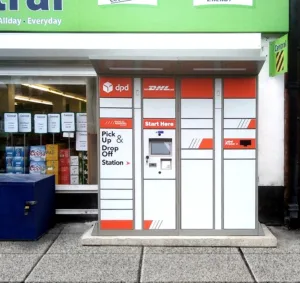by Emma Sahota, Managing Director at Astound Commerce
In 2023 increasingly socially conscious consumers will factor sustainability and values-based governance into their shopping decisions, requiring retailers and brands to be both transparent and authentic in their response to these ethical and structural challenges.
The issue of sustainability in business, spurred on by a year of critical climate emergencies around the world, has moved beyond nice-to-have and is now increasingly a non-negotiable demand from shoppers. Consumers feel the magnitude of the crisis and are making concrete decisions about who they will shop with based on their environmental, social and governance (ESG) policies and actions.
Even as inflation rates hit record levels, consumers still see the value of buying sustainable products. This is borne out in ESW’s recent Global Voices Pre-Peak 2022 survey of more than 14,000 global consumers, which reported 66% of respondents said they care more now about the sustainability of products they buy than compared to a year ago, with 59% having made significant changes to their shopping behaviour to lessen environmental impact.
Consumers’ concern for the environment is backed up by increasing knowledge of what causes harm to it. In 2022 brands have upped their recommerce efforts to resell previously worn or used products. Broadly, it helps brands extend the life cycle of their products, potentially reduce waste, and solidify their commitment to sustainability. Increasingly, this model is moving beyond a niche of luxury players to include mainstream retailers. Patagonia and REI run buyback programs, Michael Kors has launched a preloved resale site, and French Connection now offers the option to rent from its current collections. According to Deloitte, “circularity is on a fantastic growth trajectory with the second-hand clothing sector expected to grow faster than fast fashion.” It also provides brands an opportunity to resell returned products to curb the amount of unwanted inventory that ends up in landfills all over the world.
Preloved and rental products are often at a more affordable price point, which enables brands to add customer care to their sustainability offer, bringing together the need for reduced expenditure due to cost of living and the intention to purchase more sustainably.
Sustainability and ecommerce
Apart from the environmental impact of manufacturing goods, brands are also having to examine their entire ecommerce operations. Online channels and websites contribute to greenhouse gas emissions because they consume vast amounts of electricity. Research from Lancaster University estimates internet use accounts for nearly 4% of global greenhouse gas emissions, comparable to the aviation industry, and this number is predicted to double by 2025. And with the average web page producing 1.8g of CO2 per page view and each email an estimated 4g of CO2, brands must assess digital strategies and sustainable technology solutions to reduce website and ecommerce emissions and drive their sustainability goals forward.
Brands must act and be seen taking action, as consumer trust depends on transparency and more collaborative actions, turning communications into a conversation rather than a megaphone. While particular attention has been paid to the more overtly unsustainable elements of the retail industry, including addressing high carbon emissions from both production and delivery and implementing recyclable packaging materials to ameliorate the carbon costs of a brand, in 2023 brands will take a more holistic approach, reviewing their carbon footprint across their entire operation.
This will demand innovative and urgent action, and while individual consumers are doing their part, collectively they expect brands to act. The onus firmly sits with retailers to effect the positive environmental changes consumers now demand to see in return for their custom. In short, it is time for retailers and brands to grasp the growth opportunity sustainability provides while, most importantly, working to preserve the planet.












